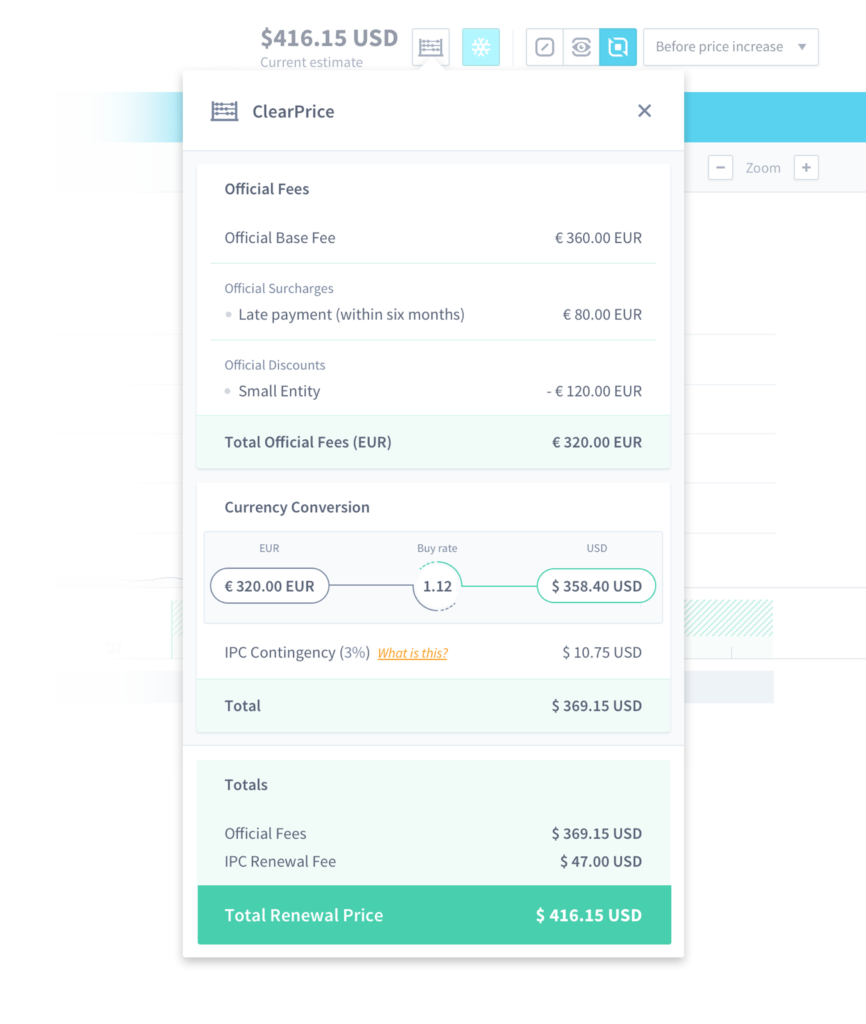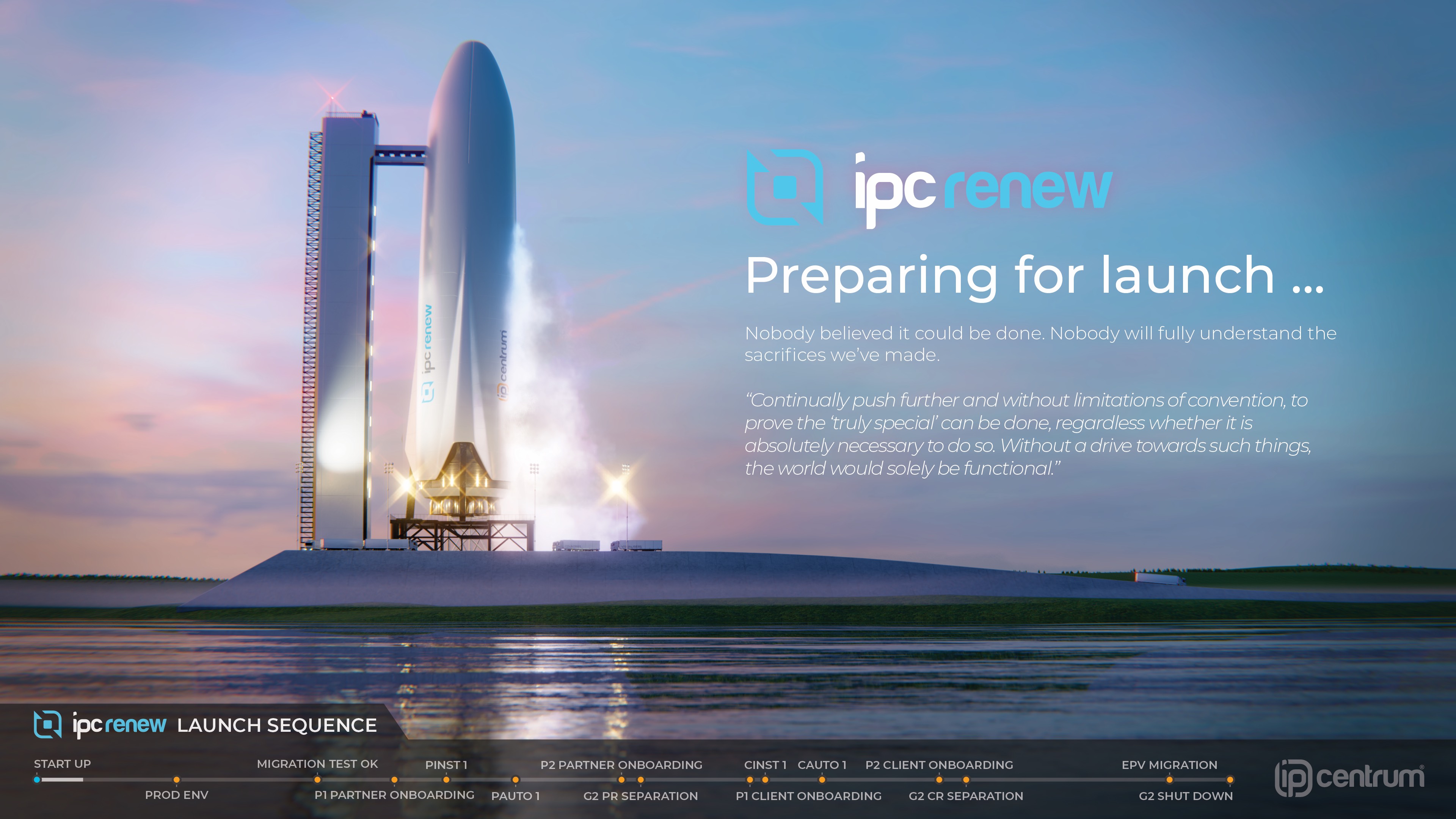When we set out to reinvent patent renewals, we had a clear nine-month plan, and wondered why nobody had done it before. As we reach the five year point of that nine-month plan, the enormity of the challenges our incredible team have faced and overcome brings into harsh focus the level of our (mostly my) naivety!
It has been hard.
The renewals industry is in many ways quite broken – from lack of transparency in high currency charges, to valuable IP being tainted or lost through failures, and a host of challenges and difficulties which the industry has just become used to. This seemed crazy to us, because there are some very smart and well funded people in the IP industry. We’re no smarter than the smartest people in the industry, so why wouldn’t they have already fixed it? It turns out, the reason is just simply because it’s so incredibly hard to do so.
Nelson Mandela said, “It always seems impossible until it is done”. But honestly, even his words failed to take the sting out of yet another set back or blow to the ego when we were starting to think we might finally have it all covered.
There are tensions in the industry which cause the brokenness, and they mostly revolve around the hugely labour-intensive work that needs to be done, and the very low gross margins the marketplace is able to find palatable. A single renewal may cost $2,000 in official fees (which need cash-flowing), and may take as much as 2 – 3 hours to complete when you add everything up. Then take into account the liability for failure – which can be significant (and so it should be! We are all handling highly valuable property). There are currencies to deal with, and foreign associates to interact with and manage. There are bills to chase and “proof” documents to check. But the renewal is seen as a commodity item – again, as it actually should! There should be nothing judgement-based in renewals; just do everything 100% correctly, and it gets renewed; do everything 99% correctly and it fails. There should be no fanfare or glory as a result of paying a renewal, and not trepidation either. It should just happen every time, without fail, and without fuss.
So how do you build a service to make a profit with such constraints? Clearly one way is to charge a lot per renewal, but isn’t that just a cop-out? The other way is to make money on the side – semi-hidden currency charges, etc – but we don’t think our clients come to us to buy high-priced currency services. They want renewals. You could employ really cheap labour. But the big problem with this is that the cost of failure is huge. So maybe the way to get around that is to add terms and conditions that absolve you of responsibility as long as you passed an instruction on (if the foreign associate messes up, feel free to sue them, because we did our bit!). But we’ve always thought that’s a dreadful way to operate – our clients don’t select the foreign associates, we do; so incidentally our terms and conditions, as well as our Professional Indemnity Insurance covers the end to end process – if we accept your instruction then WE guarantee it will get done, not just that we’ll pass an instruction on.
You can see why the ugliness / brokenness occurs. You could build cutting edge technology to augment and automate parts of the process; but the complexity is so great.. it’s just too hard. Or is it?
We decided that a reinvention of renewals would mean:
- A genuine and realistic potential for zero failures
- Massive operational scaling (the ability to handle far more instructions at high-quality per person, rather than simply adding human beings to the operation at the lowest possible cost)
- Extremely low currency margins
- Full transparency
- Unprecedentedly high quality User Experience
It turns out all of these things are a lot easier to say than to do, but after five years of the most brutal service development programme any of us has ever been involved in, I am beyond proud to say that we have achieved it, and the result is something truly special.
Massive Operational Scaling, and Zero failures?
One of our missions was to solve the problem of needing thousands of people, just to get fairly rudimentary work done (filling out / emailing forms, making bank instructions, etc). This was necessary to allow us to charge a low per-renewal fee, whilst at the same time avoiding having to resort to semi-hidden fees or other such nonsensical measures. The only way to do that, is to increase the number of instructions a single team member can handle.
We started by trying to automate as many of the processes as possible. But there is so much nuance in IP, and so many idiosyncratic circumstances, that individual review is often necessary, which means researching and coding every single possible anomaly or oddity in-case it may one day occur. We chewed through about two years on that, until we discovered that the solution was not in solving every possible circumstance, but instead was in teaching our systems to handle what it can, and critically, to be able to detect on its own those circumstances where it no longer has the ability to operate autonomously, and therefore immediately raise it for human being attention and control. We invented the concept of SIMs (Staff Intervention Matters) which are micro-issues relating to an individual instruction, or case, or PoA or “proof” file, or anything that goes slightly off track, allowing one of our team to step in. Once resolved, the instruction is released and drops back in to the autonomy of the technology. Sounds easy – but it really isn’t. It required a reinvention of the way a service company (of any kind) runs, including the design of a completely new team-structure, new software development strategies that (as far as we know) have not been done before. We employ massive fail-safes, where two software engineers, each build a separate module independently to handle the same task – during live operations, both of these modules perform the task, and a further module checks the results of each to make sure they match. This and myriad other systems all feed in to a hugely sophisticated “Vital Signs” system which monitors every aspect of the service and raises instantly actionable areas of concern before they become a problem, on huge wall-sized dashboards.
We’ve even had to come up with a purpose-designed room, solely to allow the fluidity and efficiency of the operation necessary to achieve this level of scale whilst maintaining precision.


The net result of all of this effort, is far beyond our original imaginations, providing a level of operational scaling somewhere between 250-350X – meaning that for each of our operational team members, our competitors need somewhere between 250-350 people to handle the same volume. It’s hard to fully appreciate what a difference this makes. Traditionally to handle, say 2 million renewals a year, you’d need somewhere around 2,000-3,000 people. With this new method, that’s 6 – 10 people. And these are not overly stressed people. These are REALLY good, high quality people who care deeply about what we’re doing, and about our clients, our network of incredible agents and partners, and about our mission to support the world’s greatest IP Formalities people to do their diligent and critical work.
But massive scaling doesn’t help if what you deliver is no better. We’ve learnt that setting out to achieve a zero-failure rate from day-one, throughout, is many orders of magnitude more challenging than setting out for 99.99999%. We have had to conduct research to such a ludicrous extent that one of the most common phrases we hear on a daily basis – from law firms and patent offices – is “we’ve never been asked that before”. Another common phrase is “but that almost never happens”. These things have to be overcome somehow because if we want a zero-failure rate, we need to understand the rules very deeply, and know exactly how to calculate the very last moment a given renewal can be filed. Nobody has this information, anywhere in the world. There isn’t another provider that comes close to the detailed level of knowledge we have for such things. Let me illustrate:
In some countries, you get until the end of the month in which the filing anniversary falls to pay the renewal without surcharge. But in some cases if this falls on a weekend, then the date moves to the next working day, and others to the previous working day. In some of those cases, this weekend issue is the same for public holidays, in others it’s different. In some of those cases, if the anniversary falls on a weekend, you move the anniversary first, which might move it in to a previous or next month in which to select the last day of. Sometimes this is different if the patent has been exposed to respite, and in other cases, a previous lapse and restoration, or even a previous late payment might alter these rules. In some countries there may be a different deadline structure if the applicant is a natural person, and that person served in the country’s military. What about non-existent days? If you file on 29 Feb, then your anniversary doesn’t exist most years. Do you move forward, backwards? If forwards, and you get until the end of the month, does that mean that you actually get until the end of March to pay? And each of these intricacies can be different for the deadlines associated for any grace periods – sometimes those are different to the original normal deadline. And then you can have differences if the patent was originally filed as a PCT, or is a divisional, or any number of other complications. And this is just about deadlines (although to be fair, deadlines are a big part of the problem!).
You could argue “just pay it before the anniversary and you don’t need to know that”. That’s fine, but it’s a fact of life that anniversaries are missed for all sorts of legitimate reasons, such as late budget sign offs, or strategic delays. So the next best thing is to operate by saying “pay by the anniversary as normal, but if you don’t just ask us and we’ll tell you if it can still be paid”. But then your operational scaling is destroyed and you need hundreds or thousands of people to handle any meaningful volume. Maybe you go “precautionary” and just let your client know that the absolutely critical deadline is the earliest of the ones you think it might be. But then if a client looks at your system after that date, and you’re saying it can no longer be paid, so gives up; then a few months later they discover they still could have paid it until the following Monday (even if through another provider), they would be quite rightly very disappointed in you!
These horrible issues are things being dealt with by IP Formalities professionals around the world every single day. These people really care about what they do. And nobody is REALLY helping them.
The room you see above (which incidentally has been nicknamed “Lava Lake” as a nod to its semi-accidental resemblance to a Bond-villain’s global-domination suite), in combination with the extraordinary technology we’ve built, along with the design of our operational deployment processes, will allow us to handle more renewals than all of the major providers combined, all from that single room. Seems nonsensical and hard to believe, I agree. But “it always seems impossible until it’s done”.
Currency Margins and Transparency
While speaking with hundreds of clients and potential clients around the world, we noticed that while everyone had their own individual needs for a renewals service, there was one thing which everyone told us was essential: Transparency. Whilst this is a very hard thing for a very long established company to suddenly embrace, this is actually pretty easy for us to do. All we had to do from the start was make sure that we were building a service which we would be completely happy to be totally transparent about. So our first step was to ensure that our currency contingency margin would be extremely low (currently 3%), and this is possible by simply making an enormous effort to dramatically reduce the time-delta between being billed and billing our clients. So our turn-around time for instructions is typically in the region of hours, rather than weeks, and our billing points have all been harmonised as much as is practical. There is still room for currency exposure, but isn’t it true that we will on average “win” to the same value as “lose”? What, therefore, is the point of large currency margins? The only real reason for a currency margin is just literally to cover the cost of dealing with currencies (which of course there are some) and I can’t see why that would be more than 3%.
But we realised that just “doing the right thing” alone isn’t enough. We need to be super transparent about it as well, so we came up with the concept of ClearPrice, which is a pop-up available wherever you see any price.

World Class User Experience
It was critical to us that we reinvented the way great IP Formalities people interacted with their renewals provider, to make it more of a joy to use, and to truly help them with their challenges.
From the Deadline Visualiser which gives you a live, interactive view of all approaching deadlines, to sophisticated instruction controls with new concepts such as “Renew Before Price Increase” which allows you to “fire and forget”, helping to manage cash flow, and take advantage of no-cost grace periods whilst avoiding the risk of accidentally forgetting to instruct later.

For a deeper look and more information, feel free to Click Here
And here’s a little video we’ve put together which will give you a bit more information also.
Launch Sequence
But the main reason for this message was to share our launch sequence which is now underway.
As this goes to press, our Production Environment is being built including massive resilience fail-over and load-balancing technology across our own private cloud. We expect to have a successful Data Migration test from our Generation 2 platform, across to the new Gen 3 platform necessary for the advanced features of this new service within the next 7 days. Then on to Phase 1 of onboarding our incredible agents, who have all been assisting us during this development process, and onwards from there our intention is to roll out the new service to agents (partners) first. This means an intermediary conduit between our Gen 2 and Gen 3 platforms so that clients can continue to instruct unaffected, through our Gen 2 technology, while the physical processing is happening through Gen 3. Once we are 100% satisfied that this is working, we will begin to transition existing clients, and then finally migrate our EP Validation service across to the new platform.
The next few weeks and months will be very intense, and I want to go on record as saying how incredibly proud I am of our team. It is hard to convey in text the level of devotion and unrelenting passion and commitment I’ve witnessed over these last few years. You are truly amazing people.
I also want to thank our very special agent network, who have been extremely supportive of this very unusual and very challenging project – assisting with parts of the research project, and in some cases intensive parallel run efforts. Thank you! As well as to a very small number of clients who have been using our private early access system – which is rudimentary and basic by comparison, but has allowed us to test our systems and services with tens of thousands of renewals.
These last five years have been brutal, and the next few weeks and months will be no easier. But as a result of all of your effort, the IP industry will now benefit from the fact that the way renewals are handled is about to be irreversibly altered, forever.
We’ll be trying to keep everyone updated via twitter @ipcentrum as we progress through this launch phase, and I want to thank all of our clients and potential clients for your patience, and for giving us so much encouragement and support.
![]()
Simon de Banke
CEO


SALLY WHITTLE says
If your Renewal system is anywhere as good as your Validation system you will 100% have a winner. Congratulations from HGF Limited
Simon de Banke says
Thank you Sally, and to all the team there. We love you guys!
Mark Lunt says
Best of Luck, Simon….Impressive!
Simon Long says
What an odyssey you and the team at IP Centrum have been on. By the look of it, it’s been worth the effort of every hard won step of progress. It takes courage and faultless precision to reinvent established industry-wide practice. Hats off to you for having the vision and quality of thought and execution to make the seemingly impossible a dream come true for the entire renewals business. In the words of that same Nelson Mandela who you quote, “Everyone can rise above their circumstances and achieve success if they are dedicated to and passionate about what they do“.
Abdul Harun says
Woohoo. Great job, unfortunately i couldn’t see it through. Cant wait to see you revolutionised the industry.
Congrats to you all.